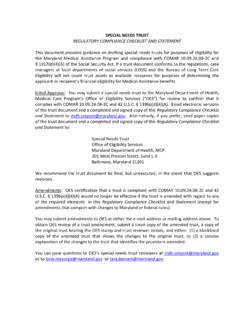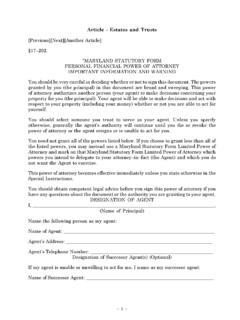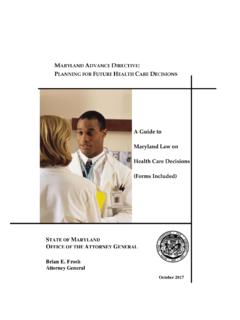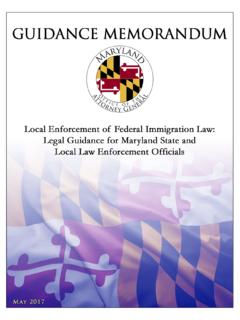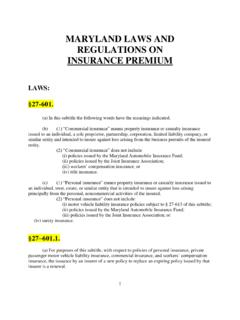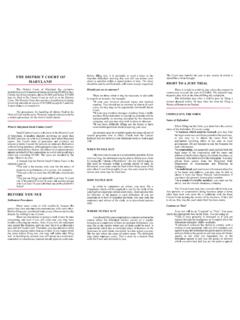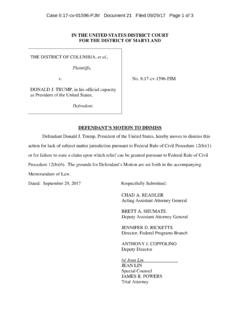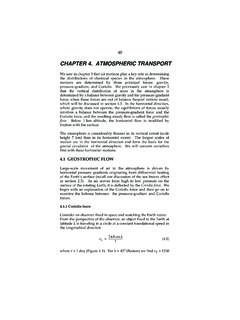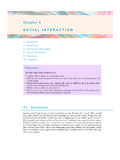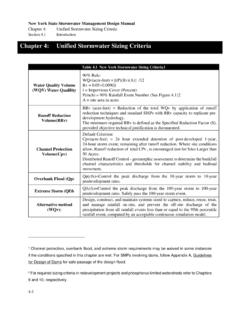Transcription of Chapter 4: Request Procedures - Maryland …
1 A. Written Request The PIA envisions a written Request . GP 4-202. However, agencies must identify categories of records that are available for immediate release under GP 4-201(c) and must make those records available without a written Request . GP 4-202(b)(1). Furthermore, the agency may waive the requirement for a written application. GP 4-202(b)(2). An agency need not and should not demand written requests for inspection of agency documents when there is no question that the public has a right to inspect them. For example, an agency s annual report and the agency s quarterly statistics are clearly open to the public for inspection.
2 In other instances, a written Request or the completion of an agency Request form may help expedite fulfillment of the Request when less commonly requested records are sought. A Request expressing a desire to inspect or copy agency records may be sufficient to trigger the PIA s requirements, even if it does not expressly mention the words Public Information Act or cite the applicable sections of the General Provisions Article. In general, there is no requirement that the applicant give the reason for a Request or identify himself or herself, although he or she is certainly free to do so.
3 The reasons for which the information is sought are generally not relevant. See Moberly v. Herboldsheimer, 276 Md. at 227; 61 Opinions of the Attorney General 702, 709 (1976). These reasons might be pertinent, however, if the applicant seeks a waiver of fees. See p. below. Knowledge of the purpose of the Request may sometimes assist a custodian who is required under Part IV to make a public interest determination prior to releasing a record. See GP 4-343. In addition, a public institution of higher education has a right to know whether a requester seeking students personal information is seeking records for a commercial purpose.
4 GP 4-355(b). The identity of an applicant is relevant if he or she is seeking access in one of the particular situations where the PIA gives a person in interest special rights of access. The Request must sufficiently identify the records that the applicant seeks. See Letter from Assistant Attorney General Kimberly Smith Ward to Deborah Byrd, Chapter 4: Request Procedures Maryland Public Information Act Manual (14th ed., October 2015) 4-2 Dorchester County Commissioner s Office (May 7, 1996) (PIA Request must sufficiently identify records so as to notify agency of the records requested); see also Sears v.
5 Gottschalk, 502 122 (4th Cir. 1974) (FOIA calls for reasonable description, enabling government employee to locate requested records). In some instances, applicants may have only limited knowledge of the types of records the agency has and may not be able to describe precisely the records they seek. An agency may appropriately assist an applicant to clarify a Request when feasible. Generally, an agency may not require the Legislative Auditor to submit a written Request pursuant to the PIA. However, if an employee of the Legislative Auditor without stating an organizational affiliation and without invoking the powers granted under the audit statute (GP 2-1217 to 2-1227) requests information from an agency that is not the subject of the audit, the agency that receives the Request should treat it as a Request subject to all of the Procedures of the PIA, including the requirement of a written application.
6 76 Opinions of the Attorney General 287 (1991). B. Submitting the Request Requests may be submitted to the agency s official custodian or to the person the agency designates as its PIA representative under GP 4-503(a). That provision requires that each governmental unit identify a representative to whom applicants should send PIA requests and post the representative s contact information on the unit s website or, if it does not have one, at a place easily accessible by the public. The contact information must include the representative s name, business address, phone number, and email address, and the unit s internet address.
7 Each unit must update the contact information annually and submit it to the Office of the Attorney General, which will publish the information on its website and in this Manual. See Appendix J. C. Time for Response Under GP 4-203(b)(1), if a custodian determines that a record is responsive to a Request and open to inspection, the custodian must produce the record immediately after receipt of the written Request . An additional reasonable period not to exceed 30 days is available only where the additional period of time is required to retrieve the records and assess their status under the PIA.
8 A custodian should not, however, wait the full 30 days to allow or deny access to a record if that amount of time is not needed to respond. Maryland Public Information Act Manual (14th ed., October 2015) 4-3 If access is to be granted, the record should be produced for inspection and copying promptly after the written Request is evaluated. If it will take more than 10 working days to produce the requested records, the custodian must notify the requester, in writing or by email, of that fact. GP 4-203(b)(2). The notification must be sent within the same 10-day time period and must indicate the amount of time needed to respond, the reason for the delay, and an estimate of the range of fees that may be charged.
9 A sample 10-day letter is contained in Appendix B. When access is denied, the custodian must, within 10 working days, provide the applicant with a written statement of the reasons for the denial in accordance with GP 4-203(c)(1). This 10-day period is in addition to the maximum 30-day (or, with an agreed extension, 60-day) period for granting or denying a Request . Stromberg Metal Works, Inc. v. University of Maryland , 382 Md. 151, 158-59 (2004). However, in practice, the denial and explanation generally are provided as part of a single response. If the Request is unclear or unreasonably broad, the custodian should promptly ask the applicant to clarify or narrow the Request .
10 If the applicant responds promptly, the custodian should fulfill the revised Request as soon as possible within 30 days of the initial Request . But if good faith discussions take an extended period of time, the custodian should clarify when the 30-day period has begun. Under no circumstances should the custodian wait the full 30 days and deny the initial Request on the grounds that it is unclear or unreasonably broad. The time periods imposed by GP 4-203 may be extended, with the consent of the applicant, for an additional period not to exceed 30 days. GP 4-203(d)(1). Those same time periods are extended by operation of law if the applicant turns to the Public Access Ombudsman for resolution of a dispute.
